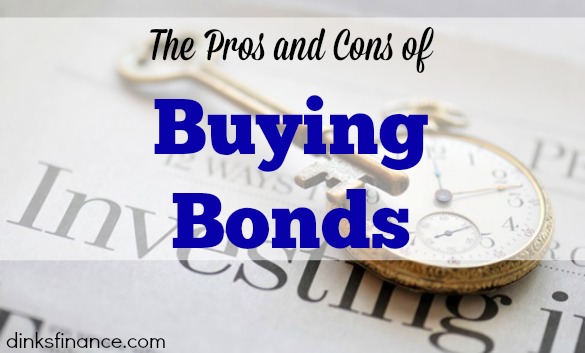If you’re looking to invest your money somewhere relatively low risk and still want to earn some type of rate of return then bonds may be just what you need. According to Investopedia a bond is described as:
“A debt investment in which an investor loans money to an entity (typically corporate or governmental) which borrows the funds for a defined period of time at a variable or fixed interest rate. Bonds are used by companies, municipalities, states and sovereign governments to raise money and finance a variety of projects and activities. Owners of bonds are debt holders, or creditors, of the issuer.”
Does that sound like the type of investment that you want to add to your portfolio? The truth is a well balanced portfolio includes both equities as well as fixed income investments and a bond may just be the type of low risk investment you want to buy.
However just like most money decisions buying bonds may not be the right choice for everyone as there are both pros and cons to investing in debt securities.
The pros of buying bonds:
Adds security to your portfolio. Low risk investments such as bonds offer a sense of security as the market fluctuates. When you buy a bond it is usually for a fixed term with a guaranteed interest rate i.e. a 10 year Federal Bond at 2.% interest rates. This type of investment leaves very little room for prices to change in times of market turmoil.
It can help minimize risk through diversification. If your entire investment portfolio is invested in high risk equities and stocks you can experience major losses when the market drops. Having a well balanced portfolio that is diversified among domestic and foreign investments as well as equities and fixed income helps minimize risk because you aren’t putting all your eggs in one basket – so to speak.
The cons of buying bonds:
Bonds pay interest. It’s always nice to have a guaranteed rate of return when investing in bonds, however the flip side to that advantage is that the rate of return is paid as interest and that can be a major disadvantage come tax time.
Of the four types of investment returns (Return on Capital, Capital Gains, Dividends and Interest) interest income is the least tax advantageous because it is fully taxed. Every single penny you earn in interest is 100% taxable on your personal tax return whereas other types of rates of return offer tax breaks.
They offer little flexibility. As mentioned a bond is purchased for a fixed amount of time at a guaranteed interest rate. If you need access to the money prior to the maturity date it can be very difficult to access. Bonds are usually not cashable prior to the maturity date which means if you buy a 10 year bond you may actually be stuck with it for 10 years.
Other fixed income investments such as short term t-bills and money market mutual funds offer more liquidity. Some bonds do offer a short (30 day) window every year on the anniversary date where the bond can be cashed. Before buying any type of investment make sure you get all the details before making the commitment.



No Comments yet!